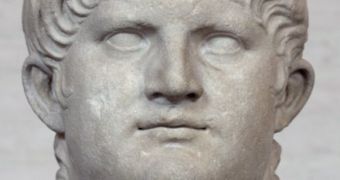The horse racing track at Olympia, one of the last unsolved puzzles regarding the site where the Greeks first organized the Olympic Games in the eighth century BC, and where the Roman Emperor Nero bought his way to victory was rediscovered by German archaeologists with the help of radar technology, after being lost for more than 1,600 years.
The track was forgotten after the Christian Emperor Theodosius banned the Olympic Games due to their pagan origin, despite the fact that it was the largest structure of the Olympia complex, measuring about one kilometer in length. "By means of geomagnetic investigation... the first clear indications of the localization of the Hippodrome were found," said Norbert Muller of the Johannes Gutenburg University Mainz, responsible with the funding of the project.
Although the site at Olympia has been studied by German archaeologists continuously since 1875, until now no evidence of the whereabouts of the racing track were found, mostly because, as radar investigations show, the track is buried under several meters of sedimentary material brought by the nearby Alfeios River. The location of the track, the race starting mechanism and the dangers to which charioteers were exposed, were last documented in the second century by the travel writer Pausanias, placing the hippodrome in the eastern side of the Olympic site.
Now, with the help of radar, Muller and Reinhard Senff of the German Archaeological Institute, Athens, showed that beneath the thick sediment layer there seems to be a long, rectangular structure similar to the ancient description of the track.
The track is mostly famous for housing the race at the Olympic Games in AD 67 in which the Roman Emperor Nero participated. It is said that the games had even been delayed by two years just to allow the ruler to participate and although he fell from the chariot during the race, he was declared a winner nonetheless.

 14 DAY TRIAL //
14 DAY TRIAL //